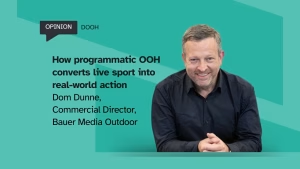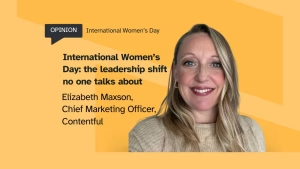by Monica Rodil, Customer Success Manager at Permutive
Traditionally, the digital ad marketplace has been a complex, fragmented and sometimes murky place for publishers and advertisers to do business. The growth in popularity of programmatic advertising has seen a dizzying number of adtech intermediaries insert themselves into the typical ad procurement path in the open marketplace (OMP).
Moreover, although Chrome’s third-party cookies may still be in use, most of the open web is already unaddressable. Two-fifths of Chrome users have opted out of sharing their data with advertisers, while browsers such as Firefox and Safari have been operating without third-party cookies for several years now. As a result, a staggering 70% of OMP audiences are now unreachable, meaning that brands are currently dedicating the bulk of their ad budgets to reach just 30% of the audience on the open web.
As a result, both advertisers and publishers are beginning to question the cost-effectiveness (and environmental impact) of OMP deals, especially when compared to the mutually beneficial results that can be gained from publishers and advertisers dealing directly with each other to strike better deals.
According to a report by Adweek, brands like Hershey’s, which spend between $350M- 450M annually on advertising, have realised that they are spending a lot of money and still not showing up in premium environments. In the search for greater transparency, Hershey’s now has a target of buying 80% of addressable media via private marketplaces (PMPs) and only 20% on the OMP.
For publishers, the opportunity to boost their ad revenues and quality with direct deals is exciting. Recent research from Digiday found that, so far this year, direct-sold ads are the top revenue source for publishers overall. Nearly two-thirds of large publishers (63%) and 42% of small publishers said direct-sold ads now account for a large or very large portion of their revenue.
Publisher successes
Innovative publishers are already unlocking the value of their endemic and non-endemic audiences by shifting their strategies to direct-sold. In tapping the true potential of their audience data, publishers can drive direct deals, win more RFPs, and secure repeat business with advertisers.
Ranker, for example, can create high-intent audiences based on first-party data collected from audience data and then create lookalike audiences. The publisher uses pre-sale audience affinities to craft proposals and post-sale analysis to feed insights back to brands. For Ranker, their direct strategy has resulted in increased performance: a 4x increase in revenue year-on-year and a 25% increase in their RFP win rate.
Meanwhile, Penske Media Corporation saw a 46% increase in revenue from direct deals based on their first-party data. And Trusted Media Brands have seen their win rate using data boosted by 10%, with the deal size increasing 2x when data is present on an IO vs no data.
This is a game-changing moment for the publishing industry. Having struggled for so long to successfully adapt to the online world, publishers now have the means not only to survive, but also to thrive and grow.
Benefits for advertisers
These direct deals are not only good for the publishers; advertisers are seeing improved results too. Gumtree, the online classifieds site has been transitioning toward more direct deals since 2021 when the platform’s executives wanted to get more out of their data. As a result of its more accurate matching via first-party data, Gumtree saw its direct campaigns achieve clickthrough rates that were 36% higher in the first three months of 2023 than the whole of 2022. Meanwhile, the average CPM was up 14% compared to the first quarter of 2022.
Direct deals can ensure that advertisers reach 100% of the audiences they want to target, while enabling publishers to get the most out of their precious first-party data and inventory, without ever jeopardising the privacy of users. In addition, direct deals boost revenues, increase transparency, drive ad effectiveness, and deliver better insights to inform engagement with consumers.
To make the most of the opportunity before them, publishers need to satisfy advertiser demand for closer relationships, curated audiences and up-to-date consumer insights.
Permutive is a client of Bluestripe Media Group, the publisher of New Digital Age.










